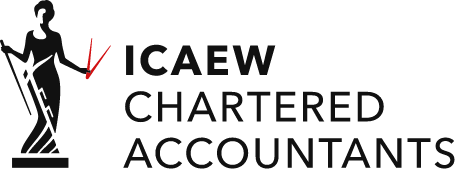
Introduction
The compliance regime surrounding the not-for-profit sector was overhauled in April 2022 to be more in line with international standards. Changes to the registration criteria and rules surrounding governance have been revisited.
Previous thresholds requiring charities and non-profit organisations (“NPOs”) to register have been relaxed. Some entities managed by corporate service providers and trust companies, which were not previously required to register, have been brought into the registration regime.
Whilst the income of charities remains exempt from tax, there is expected to be a requirement to submit annual tax returns although the details of this have not yet been made public.
Tax rebates on larger charitable donations can be reclaimed from the Guernsey Revenue Service.
New Legislation
The new regime is split into three separate instruments:
• The “Ordinance” defines charities & NPOs and sets the thresholds for the requirement to be registered.
• The “Regulations” set out the exemptions to registration and detail good governance and risk mitigation measures.
• A third instrument sets the timetable for implementation.
What is an NPOs and What is a Charity?
An NPO is defined as any organisation established solely or principally for the non-financial benefit of its members or for the benefit of society.
A charity is an NPO that passes two further tests:
• All purposes of the organisation are charitable or are purely ancillary or incidental to any of its charitable purposes; AND
• It must provide, or intend to provide, benefit for the public or a section of the public in Guernsey, Alderney or elsewhere to a reasonable degree in giving effect to its purposes.
The Ordinance lists 16 categories of charitable purposes. The last category is a catch-all category to include purposes not listed but in line with any of the other purposes listed.
Which NPOs and Charities CAN Register?
To be on the register, the NPO needs to be based in, or established, controlled in or operating from Guernsey or Alderney.
Which NPOs and Charities MUST Register?
NPOs must register if they either:
• Have gross assets of £100k or more or gross income of £20k or more (unless they don’t solicit or accept donations from the public). These thresholds are much higher than under the previous regime which were £10k & £5k respectively.
• OR, they engage in international activities (i.e. they raise or distribute assets abroad). There are limited exceptions to this such as if international activity is to assist someone who ordinarily lives in Guernsey or Alderney.
NPOs administered, controlled or operated by GFSC regulated businesses are no longer exempt from registering whereas they were previously. However, there are some governance related concessions.
What Must Registered NPOs and Charities Do?
Annual validations must be filed by 28 February each year and any changes to the information held by the registrar must be notified within 21 days of the change.
The regulations dictate what detail needs to be included in the constitution.
Financial records must be kept to demonstrate that the assets are applied in line with the objectives of the organisation.
Annual financial statements must be filed with the registrar (if registration was compulsory).
The financial statements need to be “audited” which means they need to be reviewed by, and signed off by, a qualified individual or firm such as DNA Ltd.
Records must be kept of all meetings, decisions and contractual documents.
NPOs are required to implement standard measures to ensure financial probity and transparency (for example, that all funds must pass through the organisation’s bank account or that multiple signatures are required to release funds).
Registered NPOs must now identify donors of donations of £15k or more in any year if the donor is from someone outside the Bailiwick, or if a donation is considered unusual.
They must also identify beneficiaries where the provision of assets amounting to £15k or more in a year and the beneficiary resides or is established outside the Bailiwick.
They must also report to the registrar international payments over £100k. Physical items, payments to support a person from the Bailiwick or payments to an affiliated organisation in the UK, Jersey or the Isle of Man do not need to be reported.
All registered NPOs must carry out a risk assessment and put in mitigating measures where necessary.
Internationally focussed NPOs must have a written anti-financial crime policy in place and this must be filed with the Registrar.
There are other requirements including matters relating to the constitution and directors.
Further Information on the New Requirements
The above is a summary of the main requirement and not an exhaustive list. For more detailed information and examples, please refer to The Association of Guernsey Charities and The Guernsey Registry’s charity pages.
Tax Returns and Tax Relief for Charities
The income of a charity is exempt to tax if, and so far as, the income is applied to charitable purposes. This applies to both registered charities and charities that are not required to register but otherwise meet the definition of a charity under the Ordinance.
Only income that is not exempt needs to be declared to the Director of the Guernsey Revenue Service.
Up to now, charities have not generally been required to submit annual tax returns.
Going forward, it is expected that charities will be required to submit annual tax returns. However, it has not yet been decided when this will start. It is also yet to be decided if all charities will need to submit returns or just those with income and/or assets over certain limits.
We are yet to hear whether there will be an ongoing requirement for returns on an annual basis, but it is expected that this will be required for some, if not all charities.
Tax Rebates for Charities
Tax rebates can be claimed by charities on donations of between £500 and £7,500 received from individuals who pay Guernsey tax on their income.
The donation received by the charity is regarded as being net of tax and that tax can be reclaimed. 20% of the grossed-up donation is paid directly by the Revenue Service to the charity. This is similar to the UK’s Gift-Aid scheme but is not available in Guernsey on donations below £500 to avoid excessive administration for charities and the Revenue Service.
The individual making the donation must make a written declaration to the charity certifying that:
• The donation is made to a Guernsey Registered Charity.
• The donation is being made by an individual from their income in respect of which they have been charged to income tax and has paid tax at the individual standard rate in the year of charge in which the donation is made.
• The amount of the donation, when aggregated with the amount of any other payment made by the same individual to the same Guernsey Registered Charity in the same year of charge is at least £500.
• The amount of the donation, when aggregated with the amount of any other payment made by the same individual to the same or any other Guernsey Registered Charity to date in the same year of charge does not exceed £7,500 (see note below).
• The donation, and any other payment referred to above is not made under a deed of covenant entered into before 1st January 2010.
• If the donor has made donations exceeding £7,500 as a single payment, or in aggregate, during the calendar year, when completing the certificate to pass on to the charity, they should restrict the amount qualifying for repayment accordingly.
Where a Deed of Covenant was entered into prior to the 1 January 2010, and the Deed remains valid and enforceable on that date, it will be allowed to run its course. Therefore, payments made under the terms of a Deed of Covenant set up before 1 January 2010 would continue to be claimable on the personal tax return of the donor provided the Deed had not expired or was not amended, extended or renewed.
JPW
24/05/2023


